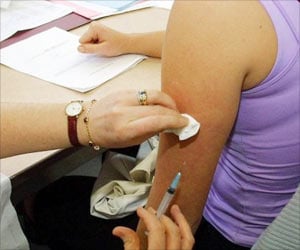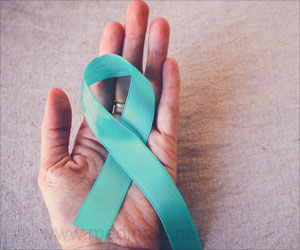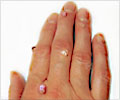- Human Papillomavirus infections are often associated with genital warts and certain cancers.
- Two-dose of HPV vaccine found to be effective in treating genital warts
- The study was found to be the first published clinical evidence for CDC recommendations.
The clinical evidence from the researchers stated that the two-dose HPV vaccine was found to be as effective as three doses when given as directed.
Research Study
The research study focused on around 400,000 girls to find out the rate of genital warts and the number of vaccine doses that were received. The research team also found that receiving two or three doses of the vaccine could provide more protection against genital warts when compared to either one dose or not receiving the vaccine at all.
Vaccine Recommendations
HPV vaccines are recommended to prevent HPV infections, and associated diseases such as cervical cancer and genital warts.
The Centers for Disease Control and Prevention and the World Health Organization(WHO) updated the recommendations to a two-dose vaccine schedule for girls and boys between the age of 9 to 14.
"This study validates the new recommendations and allows us to confidently move forward with the 2 dose schedule for the prevention of genital warts."
The findings of the study reported that the rate of genital warts for all the girls was found to drop significantly from 2007-2013. This could also explain the reason for the wide distribution of the HPV vaccine in recent years.
However, "The data supporting a two dose schedule is encouraging, but it only reports on genital warts, not cervical dysplasia or cancer outcomes.”
“Collecting that long term data is paramount," said Perkins, who is also an associate professor of obstetrics and gynecology at Boston University School of Medicine.
"This study will be a stepping stone for future research into the effectiveness of the two-dose schedule of the HPV vaccine for other symptoms of the disease."
Genital Warts
Genital HPV is capable of passing from one person to another during sexual activity. HPV infections are common in the late teens and early 20s.
Some types of HPV infections also cause warts in the genital areas of men and women. Even though warts are not life-threatening, the treatment could often be uncomfortable.
References
- Rebecca B. Perkins, Mengyun Lin, Sherrie F. Wallington, Amresh Hanchate. Impact of Number of Human Papillomavirus Vaccine Doses on Genital Warts Diagnoses Among a National Cohort of U.S. Adolescents. Sexually Transmitted Diseases, 2017; 44 (6): 365 DOI: 10.1097/OLQ.0000000000000615
- HPV Vaccine Information For Young Women - (https://www.cdc.gov/std/hpv/stdfact-hpv-vaccine-young-women.htm )
Source-Medindia















